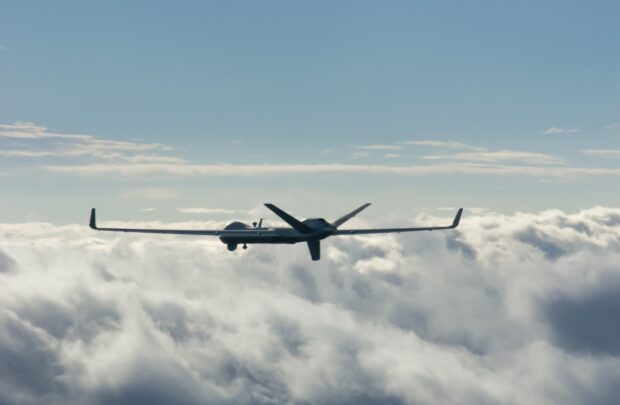General Atomics Aeronautical Systems, Inc. and the U.S. Marine Corps (USMC) teamed up to conduct flight training for Marines that was completed on Oct. 29, 2023. The seven-week course on the operation of MQ-9A Block 5 Unmanned Aircraft System was given to Marine Aviation Weapons and Tactics Squadron One (MAWTS-1) at Marine Corps Air Station Yuma, Arizona.
The students participated in Weapons and Tactics Instructor (WTI) Course 1-24, which is a comprehensive course designed for selected pilots and enlisted aircrew that incorporates Marine Corps planning along with implementation of advanced air and ground tactics.
WTI, recognized as an advanced, graduate-level program, provided standardized, advanced tactical training, and played a crucial role in developing and employing aviation weapons and tactics both over land and in maritime environments. The Marines were trained using a GA-ASI-supplied MQ-9A, and the graduates of WTI will now go on to be the experts in MQ-9A Block 5 employment in their squadrons.
The training is a critical part of the Marine Air-Ground Task Force (MAGTF) Unmanned Expeditionary (MUX) Medium-Altitude, High-Endurance (MALE) program meeting Full Operational Capability (FOC). GA-ASI is a committed partner in helping the USMC meet this critical program milestone.
“We congratulate the new graduates of WTI and Semper Fi,” said GA-ASI Vice President of DoD Strategic Development Patrick Shortsleeve. “GA-ASI is proud to support the training of the MAWTS-1 aircrews in the use and utility of the MQ-9A platform.”
Renowned for its fault-tolerant flight control system and triple-redundant avionics system architecture, the MQ-9A UAS embodies the industry’s highest standards of reliability and performance, surpassing those of many manned aircraft.
GA-ASI has delivered nine MQ-9A UAS to the USMC so far. Four of these MQ-9A aircraft are actively engaged in operational missions, playing a vital role in supporting mission-critical Marine Corps objectives. The USMC awaits delivery of 11 additional aircraft, which will fulfill their goal of three squadrons by 2025.
Source: Press Release

